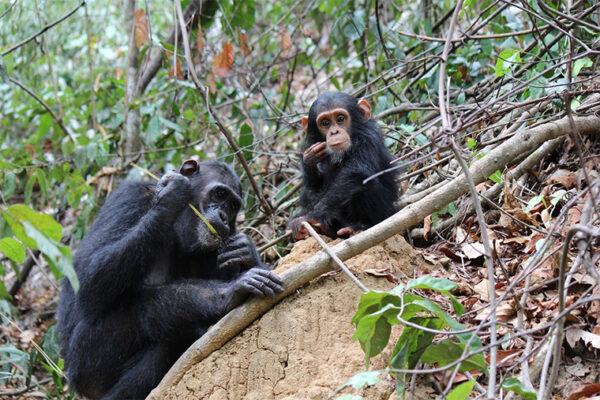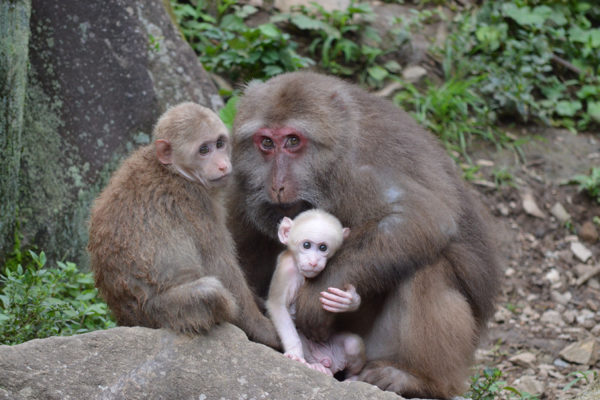Sanz’ research focuses on understanding the factors which have led to the emergence and promoted the maintenance of behavioral diversity in primates. She is particularly interested in the variation of social organization and material culture that has been documented among wild chimpanzee populations. This pursuit involves field studies and collaborative projects to examine instraspecific variation in the behavioral ecology of wild chimpanzees.

Crickette Sanz
Associate Professor of Anthropology
Contact Information
- Phone: 314-935-5252
- Email: csanz@wustl.edu
- Website: Website
Media Contact
In the media
Cockatoos Know How to Pick the Right Tools for the Job
Crickette Sanz, professor of biological anthropology
Why Chimps and Gorillas Form Rainforest Friendships
Crickette Sanz, professor of biological anthropology
Monumental patience
Crickette Sanz, professor of anthropology
Stories
Chimpanzees more likely to share tools, teach skills when task is complex
New Arts & Sciences research finds that chimpanzees that use a multi-step process and complex tools to gather termites are more likely to share tools with novices. The study helps illuminate chimpanzees’ capacity for prosocial — or helping — behavior, a quality that has been recognized for its potential role in the evolution of human cultural abilities.
The complicated social life of primates
Anyone who peruses relationship settings on social media knows that our interactions with other humans can be complicated, but a new study in Nature Scientific Reports suggests that researchers may be overlooking some of these same complexities in the social relations of our closest primate relatives, such as chimpanzees and macaques.
WUSTL anthropologists’ work prompts Republic of Congo to enlarge national park
Research by WUSTL anthropologist Crickette Sanz, PhD, and colleague David Morgan, PhD, has spurred the Republic of Congo to enlarge its Nouabalé-Ndoki National Park boundaries to include the Goualougo Triangle. The Goualougo Triangle is a remote, pristine forest that is home to at least 14 communities of “naïve” chimpanzees with little exposure to humans.


